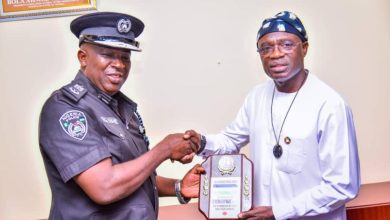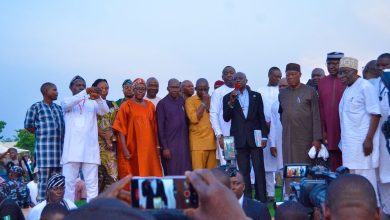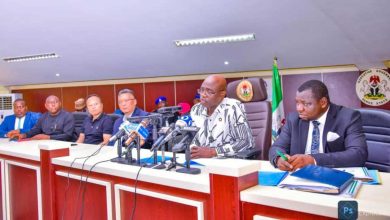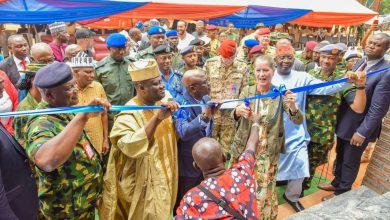Embracing Diversity: Celebrating Eid-el-Fitri in Benue State
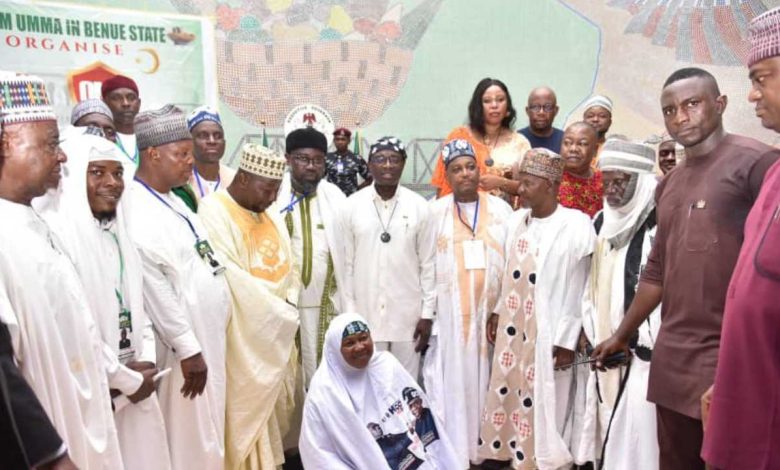
Eid-el-Fitri, a celebration marking the end of Ramadan, holds profound significance in Benue State, Nigeria. As communities come together to rejoice in the culmination of a month-long period of fasting and spiritual reflection, the festival serves as a testament to the values of unity, diversity, and inclusivity that define the region. In this comprehensive exploration, we delve into the cultural, communal, and spiritual importance of Eid-el-Fitri in Benue State, as articulated by His Excellency, the Executive Governor of Benue State, Rev Fr. Hyacinth Iormem Alia, shedding light on its significance and relevance to both the Muslim community and the wider society.
The Significance of Eid-el-Fitri in Benue State
Eid-el-Fitri, also known as the festival of breaking the fast, marks the end of Ramadan, the Islamic holy month of fasting, prayer, and reflection. For Muslims in Benue State, Eid-el-Fitri holds deep cultural and religious significance, as His Excellency, Rev Fr. Hyacinth Iormem Alia, emphasizes, serving as a time for spiritual renewal, communal bonding, and expressions of gratitude.
Throughout Ramadan, Muslims abstain from food and drink from dawn until sunset, focusing on self-discipline, prayer, and acts of charity. Eid-el-Fitri heralds the conclusion of this period of fasting and is celebrated with prayers, feasting, and acts of generosity. It is a time for families to come together, reconcile differences, and strengthen bonds of kinship and community.
Celebrating Diversity and Unity
One of the most remarkable aspects of Eid-el-Fitri in Benue State is its celebration of diversity. Benue State is known for its rich cultural heritage, diverse ethnic groups, and vibrant traditions. During Eid-el-Fitri, as articulated by His Excellency, Rev Fr. Hyacinth Iormem Alia, these differences are celebrated and embraced, as communities come together in a spirit of unity and harmony.
From traditional prayers at mosques to festive gatherings and communal meals, Eid-el-Fitri brings people from all walks of life together, transcending cultural, ethnic, and religious boundaries. It is a time for sharing laughter, exchanging gifts, and fostering friendships across diverse communities.
Promoting Inclusivity and Understanding
Eid-el-Fitri also serves as a powerful reminder of the importance of inclusivity and understanding within the community. In Benue State, where different religious and cultural groups coexist harmoniously, His Excellency, Rev Fr. Hyacinth Iormem Alia, emphasizes that Eid-el-Fitri fosters a spirit of tolerance, acceptance, and mutual respect.
During Eid-el-Fitri, Muslims open their homes and hearts to neighbors, friends, and strangers alike, extending hospitality and goodwill to all. It is a time for acts of kindness, compassion, and charity, as people reach out to those in need and strive to make a positive difference in the lives of others.
The Role of Eid-el-Fitri in Building a Brighter Future
As we celebrate Eid-el-Fitri in Benue State, His Excellency, Rev Fr. Hyacinth Iormem Alia, underscores the importance of reflecting on the role that this festival plays in shaping our collective future. Eid-el-Fitri is not just a time of celebration; it is a call to action, urging us to work towards building a more inclusive, tolerant, and compassionate society.
By embracing diversity, promoting unity, and fostering understanding, Eid-el-Fitri paves the way for a brighter future for all. It reminds us of the values that bind us together as a community – compassion, generosity, and mutual respect – and inspires us to strive for a world where everyone is valued and respected.
In conclusion, Eid-el-Fitri holds a special significance in Benue State, as articulated by His Excellency, Rev Fr. Hyacinth Iormem Alia, where diversity is celebrated and communities come together in unity and joy. As we mark this auspicious occasion, let us embrace the values of inclusivity, understanding, and compassion, and work towards building a future where everyone can thrive.
Eid Mubarak!
